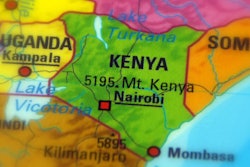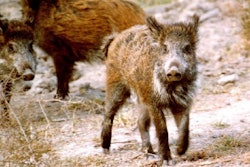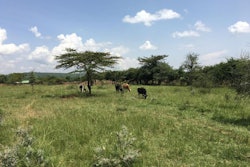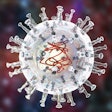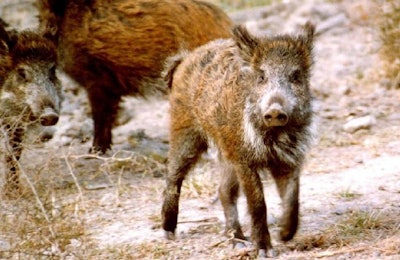
Further cases of African swine fever have been confirmed in domestic pigs in Romania and Kenya, and Germany is taking further measures to keep out the infection.
Over the past week, 36 outbreaks of African swine fever (ASF) have been reported in domestic pigs in Romania. More than 350 pigs were lost to the disease through mortality or culling as a result of these outbreaks.
All the animals affected were in small backyard herds of up to 84 pigs, according to the report from the country’s veterinary agency to the World Organisation for Animal Health (OIE). These latest outbreaks have occurred across much of the country. ASF virus was also detected in discarded pig carcasses found at two locations.
New cases in western Poland raise concerns in Germany
Over the past week, the animal health agencies of five European countries have reported to the OIE new cases of ASF among their respective wild boar populations.
Worst affected is Poland, where the infection in 134 wild boar was registered with the OIE over the past week. Of these, 93 were discovered at 85 locations in the eastern provinces of Warmia-Masuria, Masovia and Lublin, and they were found between September 3 and October 2.
ASF virus was detected in a further 41 animals in the west of the country between November 12-29. Having first been detected in western Poland in Lubusz in early November, the ASF virus appears to have spread. Cases have been confirmed in the neighboring provinces of Greater Poland (Wielkopolska) and Lower Silesia (Dolnoslaskie).
These provinces border Germany, where the federal agriculture ministry (BMEL) has announced intensified measures to try to control the disease.
Last week, Minister Julia Klöckner announced even closer cooperation with the Polish authorities. As a result, the ASF restriction zone has been extended to cover the area up to the German-Polish border. Veterinarians from the two countries are meeting to discuss joint future courses of action to control the disease.
The minister also called on other German ministries to support efforts to educate the public and other stakeholders about the importance of ASF controls. Top priority for this information campaign are hunters, farmers and truck drivers.
Further cases in wild boar in other European countries
Other countries to have reported new cases of ASF in wild boar to the OIE are Hungary (66 animals), Romania (41), Latvia (12) and western Russia (2).
ASF affects more pig farms in Kenya
The number of confirmed ASF outbreaks in Kenya has risen to four, with cases at three farms reported to the OIE in the past week.
According to the agriculture ministry, all these outbreaks began on August 23, and occurred on farms in different districts of Uasin Gishu. This county is in the west of the country. The disease was detected in 200 white pigs and eight Landrace pigs kept semi-intensively and given some food scraps, as well as in five intensively reared large white pigs fed on wheat and corn. Of the 213 animals affected, 21 died of the disease. The fate of the remaining pigs is not reported.
According to the official report, farmers had observed elevated mortalities among pigs at neighboring farms.
Previously, Kenya’s agriculture ministry reported a single outbreak of ASF at another farm in Uasin Gishu, starting on the same day.
As well as Kenya, four other African countries have reported ASF in pigs this year — Ghana, Ivory Coast (Côte d’Ivoire), South Africa and Zimbabwe.
View our continuing coverage of the African swine fever outbreak.



